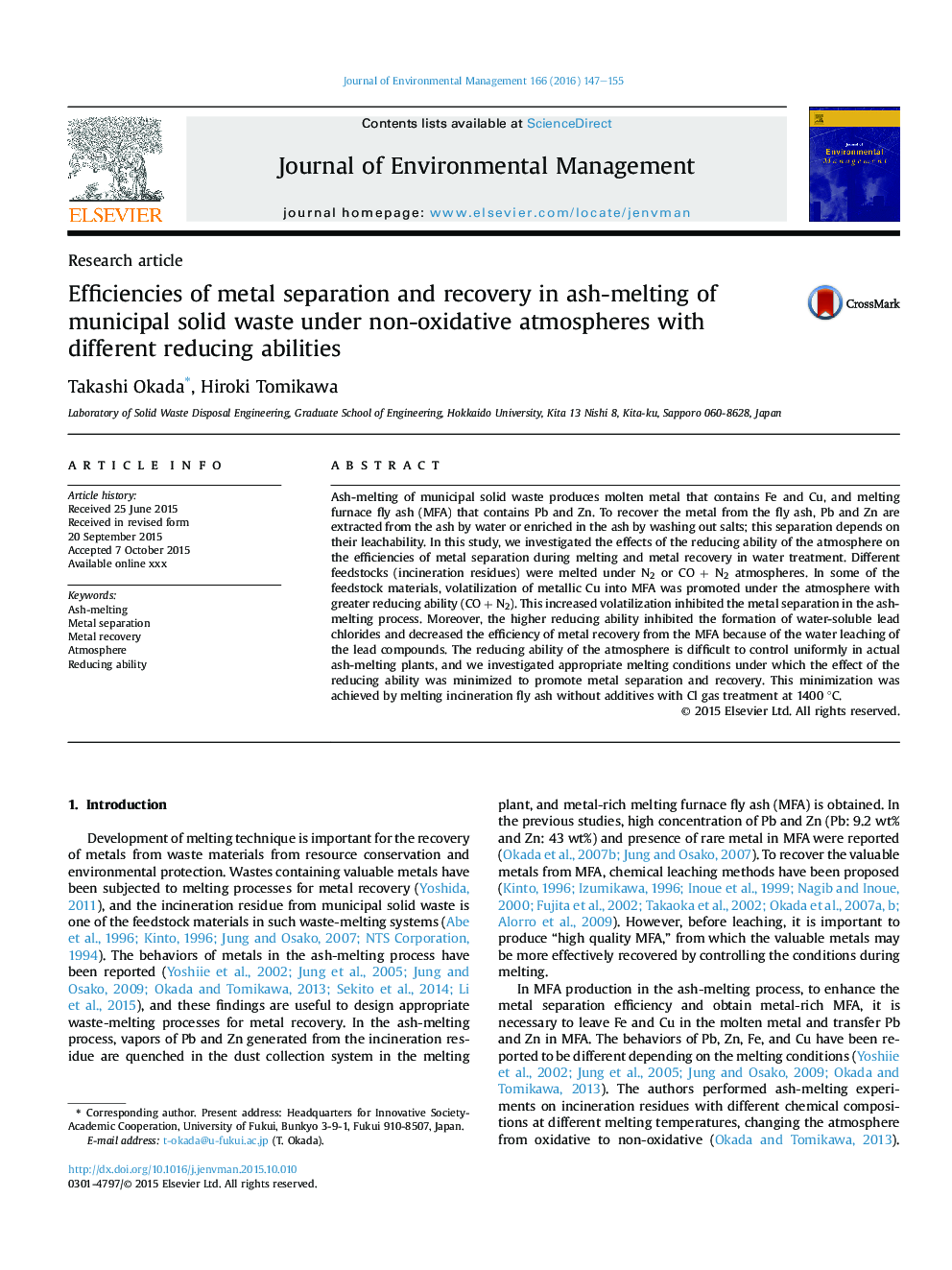| Article ID | Journal | Published Year | Pages | File Type |
|---|---|---|---|---|
| 7481371 | Journal of Environmental Management | 2016 | 9 Pages |
Abstract
Ash-melting of municipal solid waste produces molten metal that contains Fe and Cu, and melting furnace fly ash (MFA) that contains Pb and Zn. To recover the metal from the fly ash, Pb and Zn are extracted from the ash by water or enriched in the ash by washing out salts; this separation depends on their leachability. In this study, we investigated the effects of the reducing ability of the atmosphere on the efficiencies of metal separation during melting and metal recovery in water treatment. Different feedstocks (incineration residues) were melted under N2 or CO + N2 atmospheres. In some of the feedstock materials, volatilization of metallic Cu into MFA was promoted under the atmosphere with greater reducing ability (CO + N2). This increased volatilization inhibited the metal separation in the ash-melting process. Moreover, the higher reducing ability inhibited the formation of water-soluble lead chlorides and decreased the efficiency of metal recovery from the MFA because of the water leaching of the lead compounds. The reducing ability of the atmosphere is difficult to control uniformly in actual ash-melting plants, and we investigated appropriate melting conditions under which the effect of the reducing ability was minimized to promote metal separation and recovery. This minimization was achieved by melting incineration fly ash without additives with Cl gas treatment at 1400 °C.
Related Topics
Physical Sciences and Engineering
Energy
Renewable Energy, Sustainability and the Environment
Authors
Takashi Okada, Hiroki Tomikawa,
